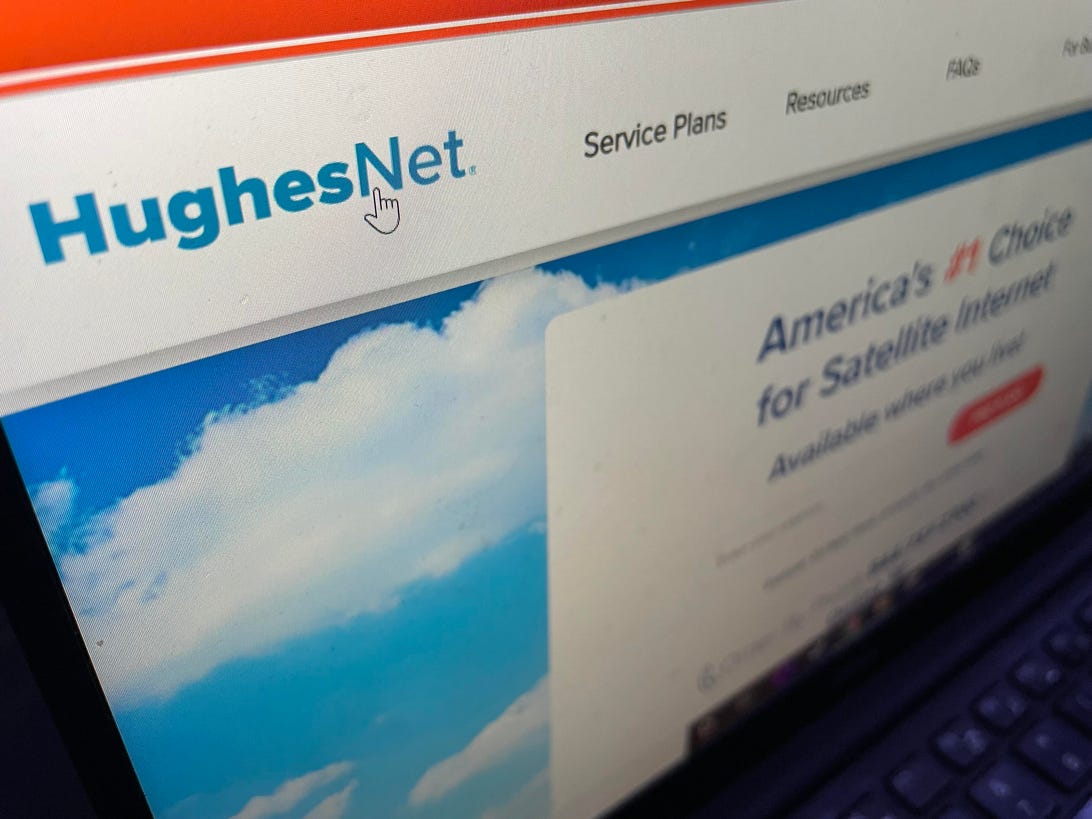
Satellite internet provider HughesNet offers multiple plans with the same basic speeds, but different data allowances. Now, effective today, the company is raising prices on those plans and increasing the amount of data you’re allowed to burn through each month.
The good news is that the price hike is on the modest side, sitting at an additional $5 per month for the two entry-level plans and an extra $10 per month for the two higher-tier plans with larger data caps. All four of the plans see their data caps increased by 50%, bringing the baseline offering from 10GB to 15GB and raising the top-tier plan’s data cap from 50GB to 75GB (or in some regions, to 100GB).
HughesNet satellite internet plans
| Plan | Monthly cost | Max speeds | Contract terms | Equipment costs | Data allowance |
|---|---|---|---|---|---|
| HughesNet Gen5 | $65 (previously $60) | 25Mbps download, 3Mbps upload | Two years | $15 per month or $450 one-time purchase | 15GB (previously 10GB) |
| HughesNet Gen5 | $75 (previously $70) | 25Mbps download, 3Mbps upload | Two years | $15 per month or $450 one-time purchase | 30GB (previously 20GB) |
| HughesNet Gen5 | $110 (previously $100) | 25Mbps download, 3Mbps upload | Two years | $15 per month or $450 one-time purchase | 45GB (previously 30GB) |
| HughesNet Gen5 | $150 or $160 depending on location (previously $150) | 25Mbps download, 3Mbps upload | Two years | $15 per month or $450 one-time purchase | 75GB or 100GB depending on location (previously 50GB) |
Meanwhile, the company’s two-year contract requirement and equipment costs of $15 per month remain unchanged. Additionally, customers can still utilize an extra 50GB of data allocated to the hours between 2am and 8am.
The new data allowances should make a small but noticeable impact on homes struggling to stay under their cap each month. HughesNet doesn’t charge fees when a customer breaks their cap, but the company will throttle your connection from the usual 25Mbps down to a slothlike speed of 1Mbps. That makes staying under the cap a worthy goal for HughesNet households — now, it’s a goal that’ll be easier to meet.
That said, the new, higher prices make HughesNet an even more questionable value than before, especially given that speeds are still limited to 25Mbps. Satellite rivals Viasat and Starlink each offer plans with triple-digit download speeds and a lower cost-per-megabit than comparable plans from HughesNet. Viasat’s data caps are also higher than the new ones from HughesNet, while Starlink doesn’t enforce data caps at all. Meanwhile, cellular internet plans from names like T-Mobile and Verizon, a growing option in rural parts of the country, offer faster speeds, lower monthly costs and no data caps whatsoever.
However, the company’s newest promotions can knock $20 off of the monthly cost of any plan for 6 months for new subscribers. It also offers 24-month discounts of $10, $30, and $50 for new subscribers of the 30GB, 45GB and 100GB plans, respectively.
Discounts aside, HughesNet (and any satellite internet service, really) should still only be seen as a last resort for locations too far removed from the grid of internet alternatives. If your address is serviceable for cable or fiber, or even outdated technologies like DSL or fixed wireless, then that’ll almost certainly be a better bet for home internet as far as speeds, value and reliability are concerned. But if connections like those aren’t available, then the higher data caps make HughesNet’s plans a little easier to live with.

